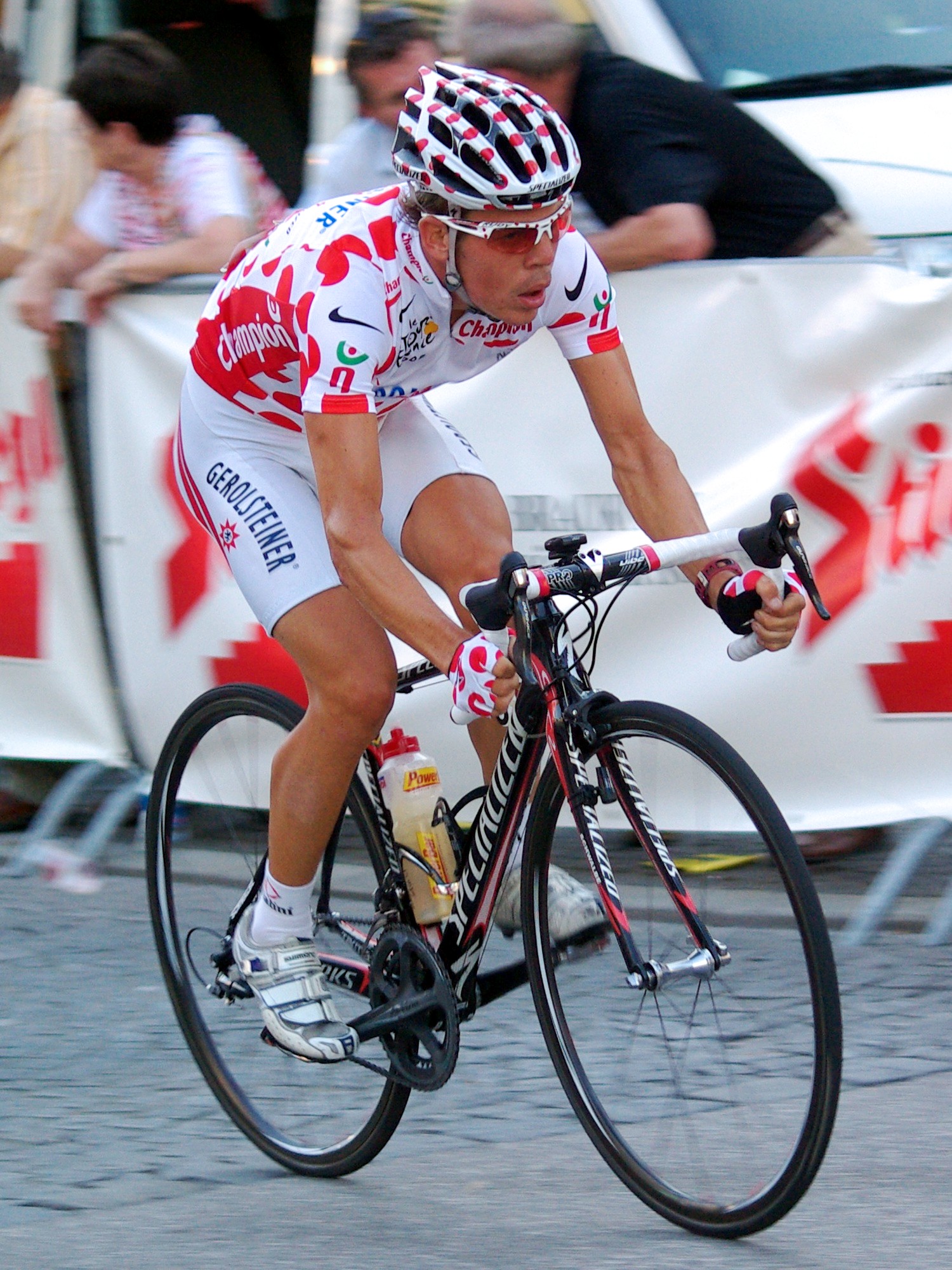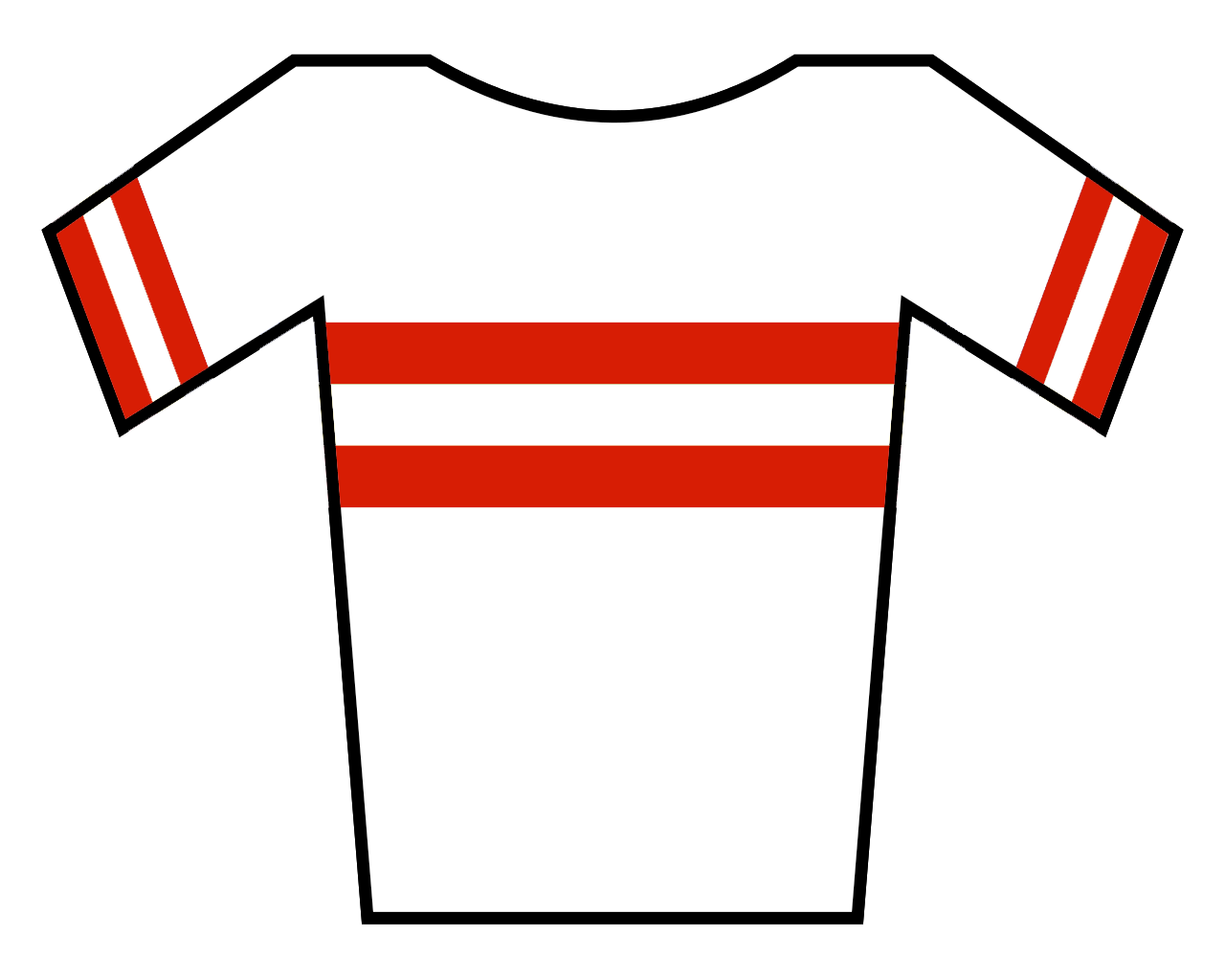1. Early life and amateur career
Bernhard Kohl was born in Vienna, Austria, on 4 January 1982. Before embarking on his professional cycling career, Kohl honed his skills in amateur cycling. From 2003 to 2004, he was part of the amateur (continental) team of Rabobank. During his younger years, specifically between the ages of 17 and 19, Kohl also worked as a chimney sweep alongside his amateur cycling activities. He achieved an early success in 2002, winning the Austrian Under-23 national championship in the individual road race.
2. Professional career
Bernhard Kohl's professional career saw him compete for several notable teams and achieve significant results in major races before his involvement in doping became public.
2.1. Early professional years (2005-2007)
Kohl officially began his professional cycling career in 2005, signing a contract with the T-Mobile cycling team. In his debut professional year, he participated in the Vuelta a España, finishing 110th in the general classification. In 2006, he achieved a major milestone by becoming the Austrian national road race champion. That same year, he demonstrated his climbing prowess by finishing third overall in the Critérium du Dauphiné Libéré. In 2007, Kohl transferred to the Gerolsteiner team. He competed in the 2007 Tour de France, where he secured a 31st place finish in the general classification.
2.2. 2008 Tour de France performance
Kohl's performance in the 2008 Tour de France was the most prominent of his career, though it was later voided due to doping. During the Pyrenean stages, he particularly excelled in the 10th stage, finishing fourth and dramatically moving up to fourth place in the overall standings. His strong form continued into the Alpine stages, where he performed exceptionally well. By the end of the 15th stage, Kohl had climbed to second place overall, trailing the then-leader Fränk Schleck by only seven seconds. He also took the lead in the mountains classification during this period.

In the 17th stage, which concluded with a finish at Alpe d'Huez, Kohl lost significant time to the riders from Team CSC-Saxo Bank, including the eventual overall winner Carlos Sastre. This setback impacted his chances for the general classification victory. Despite this, he ultimately finished third overall and decisively won the mountains classification, outperforming other riders like Sastre. These achievements were widely recognized at the time, positioning him as a rising star in professional cycling. However, as a consequence of his subsequent doping violation, all his results from the 2008 Tour de France, including his third-place overall finish and the mountains classification title, were later removed from the official records.
3. Doping and its aftermath
Bernhard Kohl's career took a dramatic turn with the doping scandal that emerged shortly after his 2008 Tour de France performance, leading to severe penalties and further revelations about systemic doping.
3.1. Positive CERA test and admission
On 13 October 2008, the French sports newspaper L'Équipe reported that Bernhard Kohl had tested positive for CERA (continuous erythropoietin receptor activator), a third-generation variant of erythropoietin (EPO), during the 2008 Tour de France. This report was based on information from the French Anti-Doping Agency. In response to these reports, Kohl held a press conference on 15 October, where he broadly admitted to having used CERA and other performance-enhancing drugs.
3.2. Consequences and ban
The immediate consequence of his positive test and admission was the termination of his contract with the Silence-Lotto team. His results from the 2008 Tour de France, including his third-place overall finish and his victory in the mountains classification, were officially removed from the records. Although the definitive re-classification of the 2008 Tour has not been published, if his results were formally re-awarded, Denis Menchov would potentially move into third place overall, and Carlos Sastre, the overall winner of the Tour, would be recognized as the mountains classification winner. Kohl was also removed from the list of contenders for the Austrian Sportspersonality of the year award, for which he had been nominated by several journalists. On 24 November 2008, the Austrian anti-doping agency (NADA) imposed a two-year ban on Kohl from professional cycling.
3.3. Further revelations and manager's arrest
Following his doping admission, Kohl made further significant revelations about his drug use practices. In an exclusive interview with L'Équipe in June 2009, he provided detailed accounts of how he "prepared" for the 2008 Tour de France. He admitted to receiving blood transfusions from his then-manager during the event itself. Kohl also criticized the effectiveness of the International Cycling Union's (UCI) biological passport system, stating that it failed to prevent him from regularly practicing blood doping throughout his career. He claimed that "the top riders are so professional in their doping that they know very well they have to keep their blood values stable not to be detected," suggesting a sophisticated level of doping within the sport.
These revelations were followed by legal actions against individuals connected to doping. On 31 March 2009, Kohl's former manager, Stefan Matschiner, was arrested in Austria. Matschiner was subsequently charged with selling doping substances. Kohl publicly stated that he was "not surprised" by Matschiner's arrest, further implicating a network involved in doping.
4. Retirement
Bernhard Kohl announced his retirement from professional cycling on 25 May 2009, even before his two-year ban was set to expire. His decision was accompanied by controversial and widely publicized statements regarding the prevalence of doping in the sport. Kohl claimed that it is "impossible to win without doping" in international cycling, suggesting that doping was an inherent part of achieving success at the highest level. This statement highlighted his perspective on the systemic issues within professional cycling and solidified his stance against returning to a sport he viewed as fundamentally compromised.
5. Major results
Results that were later voided due to doping are marked with a strikethrough.
;2000
- 3rd Overall Internationale Niedersachsen-Rundfahrt der Junioren
- 8th Overall Internationale Oberösterreich Rundfahrt Junioren
;2002
- 1st
Austrian national champion jersey Road race, National Under-23 Road Championships
- 1st Rund um den Henninger Turm Under-23
- 4th Road race, National Road Championships
- 6th Overall Grand Prix Guillaume Tell
- 7th Overall Uniqa Classic
;2003
- 2nd Road race, National Under-23 Road Championships
- 2nd Overall Thüringen Rundfahrt
- 5th Road race, National Road Championships
- 5th Overall Triptyque Ardennais
- 10th Liège-Bastogne-Liège Espoirs
;2004
- 1st
Yellow jersey Overall Tour des Pyrénées
- 4th Circuit de Wallonie
;2005
- 7th Overall Tour of Austria
;2006
- 1st
Austrian national champion jersey Road race, National Road Championships
- 3rd Overall Critérium du Dauphiné Libéré
- 5th Overall Tour of Austria
;2008
3rd Overall Tour de France1stPolka dot jersey Mountains classification
- 6th Overall Bayern Rundfahrt
5.1. Grand Tour results timeline
Legend: '-' indicates did not compete; 'DNF' indicates did not finish; 'No.' indicates a voided result.
| Grand Tour | 2005 | 2006 | 2007 | 2008 |
|---|---|---|---|---|
Giro d'Italia | Did not contest during career | |||
Tour de France | - | - | 31 | |
Vuelta a España | 111 | DNF | - | - |
6. Legacy and reception
Bernhard Kohl's career and subsequent doping scandal left a significant and complex legacy within professional cycling and on his public image. His performance in the 2008 Tour de France initially cemented his reputation as a formidable climber and a promising talent, culminating in a popular third-place finish and the polka dot jersey. However, the revelation of his CERA positive test quickly shattered this image, transforming him from a celebrated athlete into a symbol of the pervasive doping problem within the sport.
The voiding of his results served as a stark reminder of the consequences of doping, undermining the integrity of his achievements and casting a shadow over the sport itself. His controversial statement upon retirement, that it was "impossible to win without doping" in international cycling, further fueled public debate about the extent of doping and the challenges faced by anti-doping efforts. This assertion, coming from an athlete who had reached the pinnacle of the sport, suggested a systemic issue rather than isolated incidents.
Kohl's case contributed to broader discussions about athlete responsibility, the effectiveness of anti-doping measures, and the ethical landscape of professional sports. His admissions, including details about blood transfusions and criticism of the biological passport, provided insight into the sophisticated methods used by some athletes to evade detection. Ultimately, Kohl's career serves as a prominent example in the history of cycling doping, highlighting the continuous struggle to maintain fairness and trust in competitive sports.




